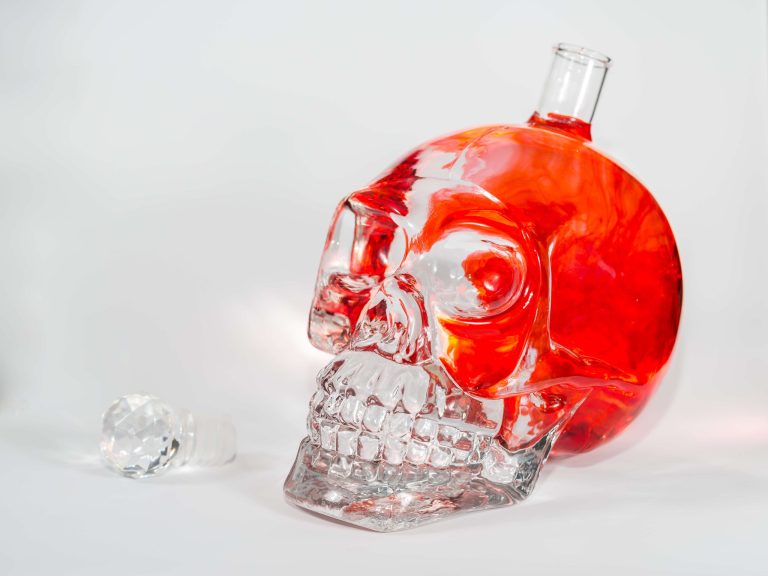How Long Does It Take To Break An Addiction? Deja un comentario
Content
The first way to break an addiction is to seek professional help. It can be an inpatient and outpatient treatment program, counseling meetup, or joining a support group. If you want a personalized treatment plan, the Asheville Recovery Center in North Carolina is best for you. It offers a comprehensive addiction treatment program that addresses your specific needs. However, some people may still suffer through post-acute withdrawal syndrome (PAWS). Many people have completed or are continuing to work through a treatment program.
Harm reduction recognizes that while total abstinence is the goal, it is a process that takes time. Although quitting entirely is the best path to wellness, reducing or eliminating the most harmful substance use or behavior is a huge improvement and will greatly reduce the harm caused. When detoxing from meth, withdrawal symptoms usually begin after 24 hours and remain intense for seven to ten days, although some symptoms can continue for much longer. Initial symptoms will include fatigue and an unusual amount of sleep.
How long does it take to break an addiction to cocaine?
They find it almost impossible to stop using drugs, even though they know it is harmful. This means the person is ready to bring about change in the future, but not immediately. Unlike the previous stage, they’re aware of the pros of becoming drug-free. One of the most clear-cut signs of the severity of addiction is that it does actually change a person’s biology.
To fight free radical damage and boost a positive gut-brain connection, individuals in recovery should eat a wide range of “brain foods” with anti-inflammatory, antioxidant, and anti-carcinogenic effects. These effects can also be reached through supplements for brain health. Additionally, medications are used to help people detoxify from drugs, although detoxification is not the same as treatment and is not sufficient to help a person recover.
What Is a 12-Step Program?
As can be seen in Table 1, substance use history was extensive, beginning in adolescence and lasting, on average, 20 years. Although 71% reported alcohol as their primary substance, all but one participant had been polysubstance users. Complete our fast, free, and easy verification process over the phone to determine the extent of your insurance coverage. Typically, professional help can range from a few weeks to several months, depending on the individual’s needs.
How many tries does it take to stop an addiction?
In a practical sense, this means the number of serious recovery attempts an individual needs varies depending on how severe their circumstances are (e.g., depression, lack of social support, addiction severity). Accordingly, some people need many attempts, but most people need 2 or less.
In addition to changing our brains in ways that make quitting addictive substances challenging and cause cognitive impairments, addiction to certain substances can cause even more profound mental illness. Although dopamine has a principal function in addiction, it isn’t the only neurotransmitter affected. Serotonin, acetylcholine, and GABA are impacted too, and each can play a role in our addiction.
We are New Jersey’s leading addiction treatment center
Your relationships and friendships are likely to change as you overcome your addiction. However, it can also take time and effort for trust to be re-established if you have hurt friends or family while you were actively involved in your addiction. Strengthening positive relationships with the supportive people in your life can play an important How to Choose a Sober House: Tips to Focus on part in your recovery and continued abstinence. In addition, addictions can sometimes mask underlying mental health problems, such as anxiety, depression, sleep disorders, and even psychosis. If you are feeling blue or agitated, or you are concerned that the world or other people seem strange or upsetting since you quit, talk with a doctor.


In this day and age, self-improvement is all the rage and the frequently touted idea that a bad habit can be broken in just 21 days is an encouraging thought for many people. Reversing a habit in such https://goodmenproject.com/everyday-life-2/top-5-tips-to-consider-when-choosing-a-sober-house-for-living/ a short amount of time (just three weeks!) makes any feat seem possible. You could start working out regularly, stick to a plant-based diet, or even kick that tobacco habit you picked up years ago.
When you complete a structured program, an aftercare program should be your next step. To rid your body of drugs, you must go through the detoxification process. When you stop using drugs or alcohol, your body naturally gets rid of those substances, but this doesn’t mean it’s safe to detox on your own.
How long does dopamine reset?
Several factors affect how quickly your brain resets its dopamine levels. The amount and frequency you used drugs or drink is a big factor, but most people find their natural dopamine levels return to normal levels after about 90 days.
By avoiding blame, judgment and accusations, it’s possible to guide them to the next stage. Not only does long-term recovery need the assistance of professional treatment, but it always benefits from other recovery-focused activities, like support groups. Support groups lack the guidance of professional therapy, and instead, rely on the sense of community and fellowship they create. Attending a support group connects someone to an entire network of people in recovery who are willing to share their experience and expertise on the subject of sobriety. If a person is working, surrounded by a reliable support system, emotionally and financially stable and working through the motivation behind substance use, their treatment could be shorter. Our years of experience combined with extensive knowledge of addiction-related mental disorders will enable us to support your transition to a drug and alcohol-free life.
If you are unsure if your doctor is willing to discuss the issue with you, simply ask if he or she is willing to talk to you about addiction treatment options. If not, ask for a referral to another doctor who is.7 This is a great way to learn about reputable treatment centers and programs in your area. Relapse is sometimes a part of the recovery process but it’s important to view it as a temporary setback instead of complete failure. Instead of giving up entirely, you can use the experience as an opportunity to re-evaluate your lifestyle, behaviors, and triggers, and make changes that will help you succeed. Aftercare helps you stay on track and keep practicing what you learned while in rehab. The stages of addiction recovery aren’t necessarily linear, and people don’t stay in them for a set amount of time.
- However, for most people, a commitment of two to five years is necessary to truly break the habit and solidify change.
- Addiction is a life-long enemy, and recovery is a daily battle–even after years of sobriety.
- The first step in overcoming addiction involves deciding to make a change.
- It should not be used in place of the advice of your physician or other qualified healthcare providers.
Because the human brain is a complex organ directing many facets of life, healing it requires many forms of treatment. Medications are also available to help treat addiction to alcohol and nicotine. If you or someone you love lives with addiction, please reach out to the helpline at Recovering Champions.
How Long Does It Take Your Body To Heal From Addiction?
Addiction is a life-long enemy, and recovery is a daily battle–even after years of sobriety. The assumption that it takes 21 days to break a habit comes from a book called Psycho-Cybernetics. In the book, author and plastic surgeon Dr. Maxwell Maltz noticed that his patients need about 21 days to get used to their “new” faces. But addiction is more powerful than an ordinary habit, and recent studies show that for most people, 21 days isn’t enough time to see any substantial change. Adding movement as part of a daily routine can significantly improve a long-term recovery outlook. Whether it is walking, hiking, doing yoga, or lifting weights, exercise can help a person feel good about his or her body.


It’s hard to leave addiction behind without constructing a desirable future. Mindfulness training, a common component of cognitive behavioral therapy, can help people ride out their cravings without acting on them. Research has identified relapse patterns in adolescents and adults recovering from addiction. In one study, two-thirds of the adults relapsed in social situations in which they experienced urges and temptations to drink or use.
